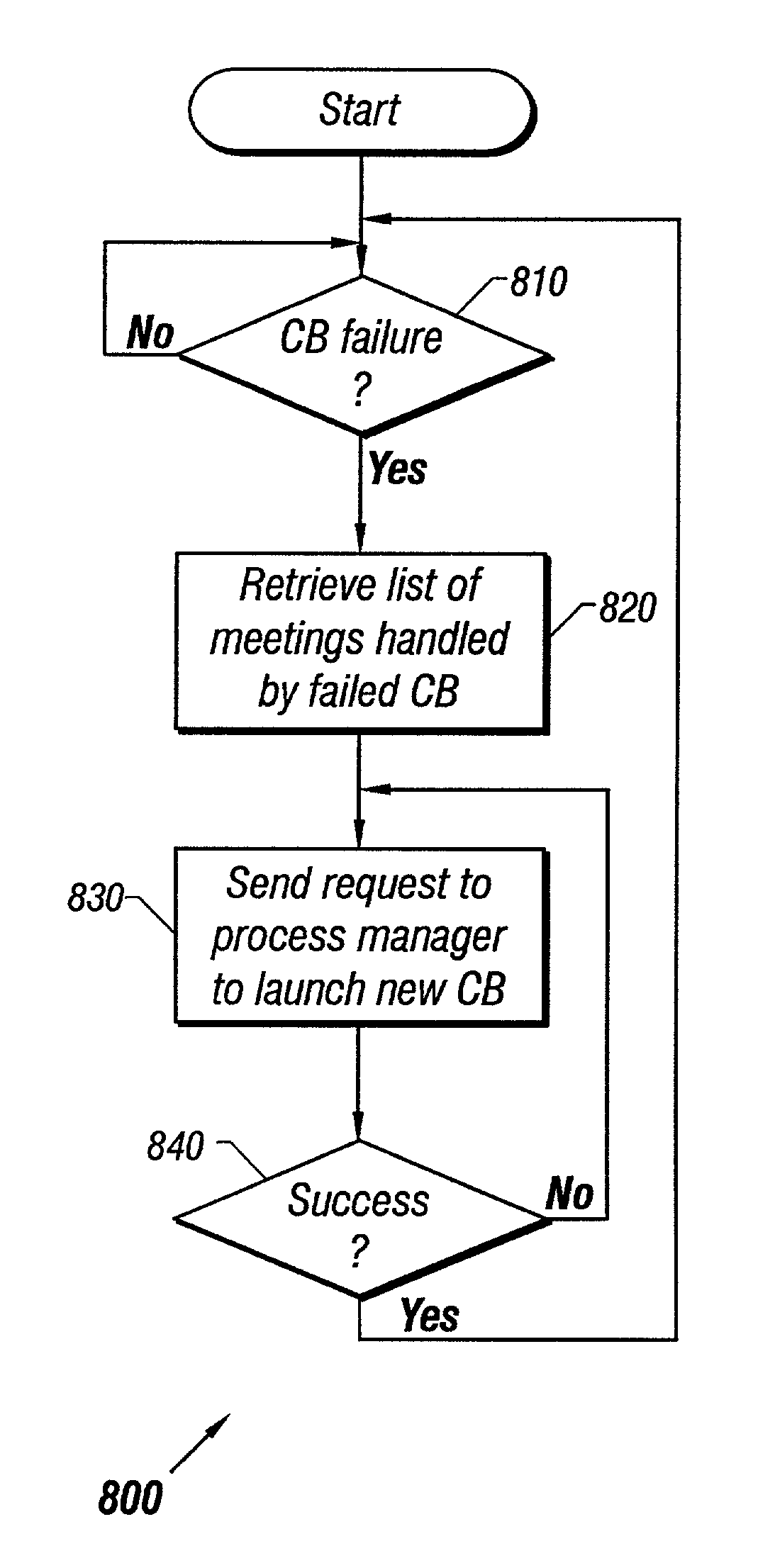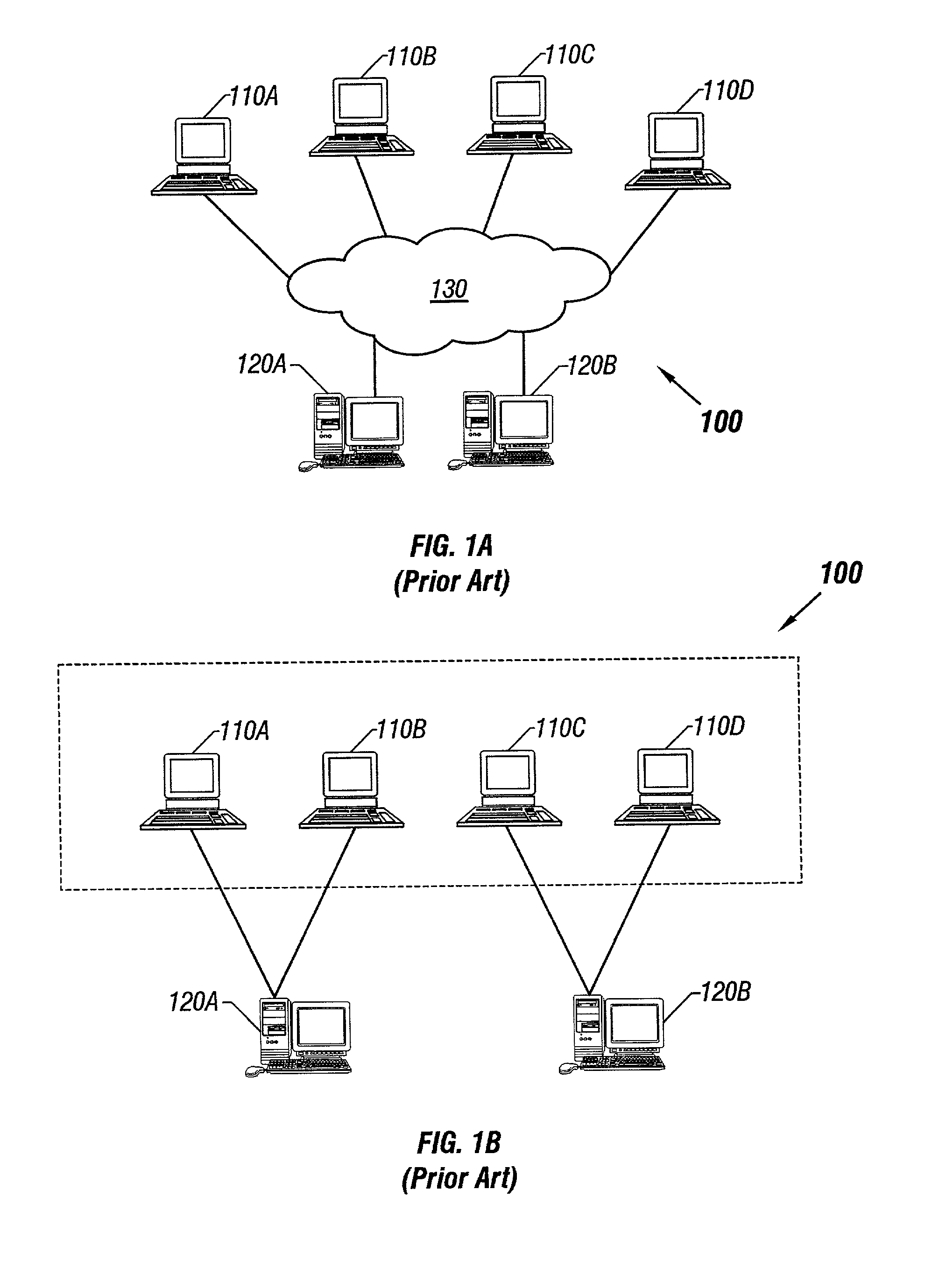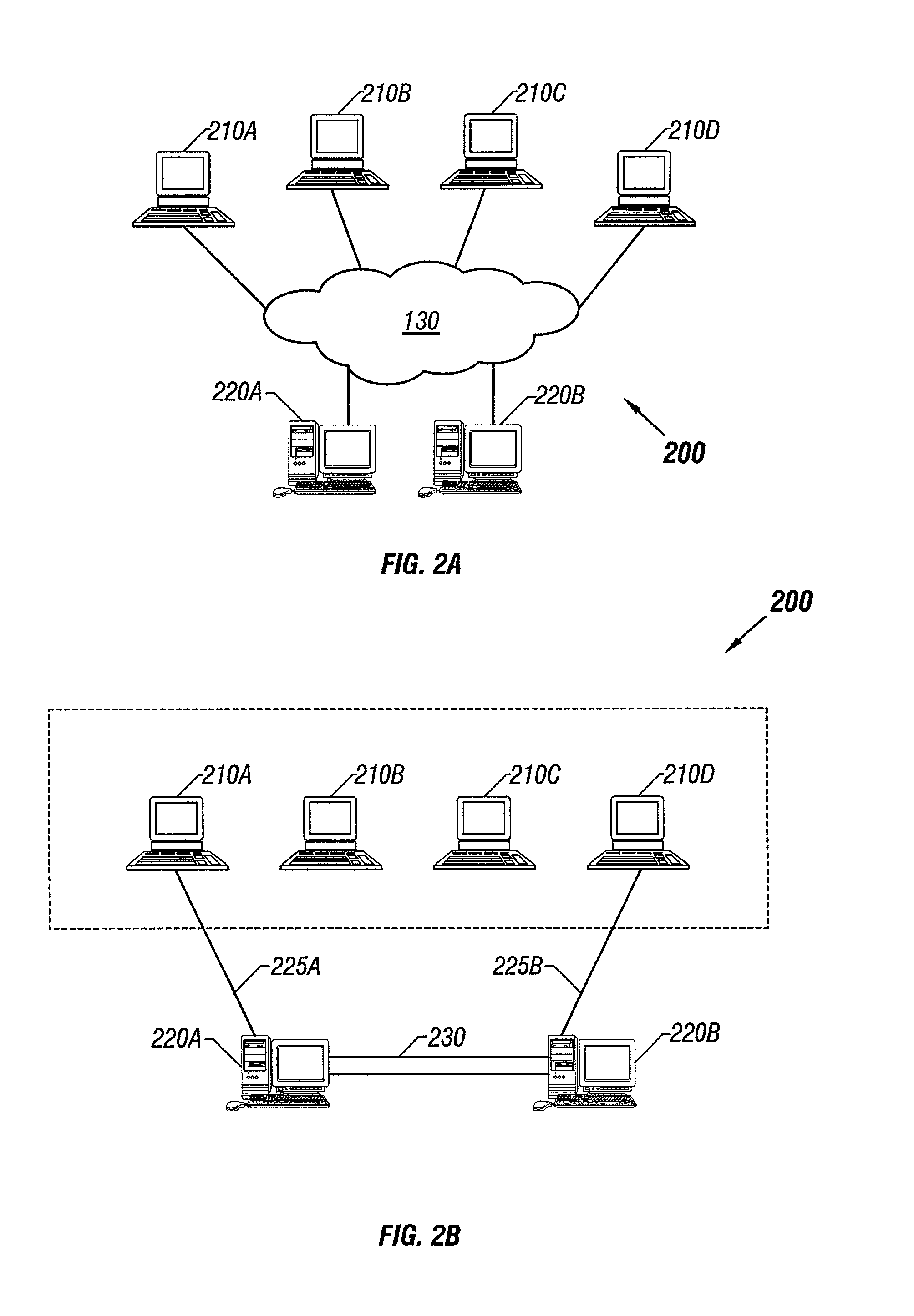Distributed network system architecture for collaborative computing
- Summary
- Abstract
- Description
- Claims
- Application Information
AI Technical Summary
Benefits of technology
Problems solved by technology
Method used
Image
Examples
Embodiment Construction
[0029]FIG. 2A illustrates a distributed collaborative computing system 200, in accordance to some embodiments of the invention. Client computers 210n (where n=A, B, C . . . ) are connected to server computers 220n via global-area computer network 130. Unlike in the prior art system of FIGS. 1A and 1B, each client computer 210n can connect to any server computer 220n. Server computers 220n are in turn connected through a high-speed link 230. High speed link 230 allows faster throughput and a higher level of security than global-area network 130. For example, in some embodiments high-speed link 130 is a dedicated T1 or T3 or optical carrier-class link, such as one employing the well-known SONET standard and OC-48 or OC-192 framing. One of ordinary skill in the art will readily recognize that many other equivalent high-speed network standards, including non-optical standards, may be employed to create a high bandwidth link.
[0030]FIG. 2B illustrates the connections established between c...
PUM
 Login to View More
Login to View More Abstract
Description
Claims
Application Information
 Login to View More
Login to View More - R&D
- Intellectual Property
- Life Sciences
- Materials
- Tech Scout
- Unparalleled Data Quality
- Higher Quality Content
- 60% Fewer Hallucinations
Browse by: Latest US Patents, China's latest patents, Technical Efficacy Thesaurus, Application Domain, Technology Topic, Popular Technical Reports.
© 2025 PatSnap. All rights reserved.Legal|Privacy policy|Modern Slavery Act Transparency Statement|Sitemap|About US| Contact US: help@patsnap.com



